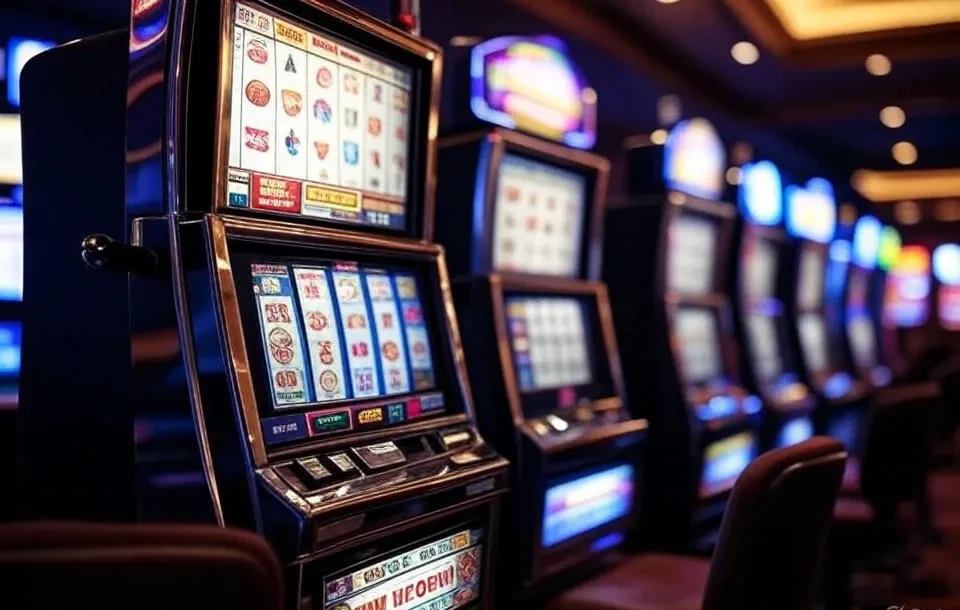Understanding Win History in Slot Games
Slot machines have evolved significantly over the years, transforming from clunky, lever-pulled boxes into sleek digital experiences filled with flashy animations and immersive themes. As online slots became the dominant form of play, developers introduced advanced features like bonus rounds, progressive jackpots, and auto-play modes. But one thing many players continue to notice—and question—is the lack of a visible win history.
In the heat of a long session, it’s natural to wonder: “Did I actually win anything significant earlier?” or “How much did I lose over the last hour?” Without clear historical data, it can feel like you’re flying blind. The reality is that many slot games do not make this information easily accessible, and there are several reasons why that might be the case.
While some Latest Casino Sites are beginning to explore more transparent user interfaces, a large number of platforms still follow the traditional model that prioritizes gameplay flow and user engagement over detailed win tracking. This leaves many players curious—or skeptical—about what happens to their money during extended play.
The Psychology Behind Hiding Win History
Keeping Players Focused on the Moment
One of the key psychological tactics used in slot game design is keeping the player immersed in the present spin. By not showing past losses or wins in a cumulative format, the game encourages players to think of each spin as a fresh opportunity. This design minimizes cognitive dissonance—essentially preventing players from becoming too aware of how much they’ve really lost.
Slot games are built to be fast, flashy, and emotionally engaging. Each spin offers instant feedback through sounds and animations, even for minimal wins. When players can’t easily see their long-term results, it’s easier for them to stay engaged without reflecting too much on the overall financial picture.
Encouraging Continued Play
Let’s be honest—slots are designed to be addictive. Game developers use a variety of techniques, like near-miss visuals and rewarding sound effects, to keep players engaged. If every spin reminded you of the amount lost in the previous 50 spins, the emotional payoff of each spin would feel dampened. The lack of win history, in this case, serves to keep the momentum going, subtly encouraging more gameplay.
Technical Limitations or Intentional Design?
How Game Design Affects Transparency
From a technical perspective, there’s no real barrier to showing win history. In fact, the software powering most online slot games already tracks this information behind the scenes—for purposes like bonus calculations, progressive jackpots, and session summaries.
The choice not to show this data on the user interface is often a deliberate design decision rather than a technological limitation. Displaying win history, especially over a long session, would make it more apparent how much a player has spent and won—or lost. This could reduce the amount of time a player stays engaged with the game, which isn’t ideal from a casino’s business standpoint.
That said, some newer platforms and responsible gaming advocates argue that more transparency can build trust with users. A few progressive operators are even starting to experiment with user dashboards that allow you to track session history, deposits, and win/loss ratios.
The Role of Regulation in Game Transparency
Are Casinos Required to Show Win History?
In most jurisdictions, gambling regulators focus more on fairness, responsible gaming tools, and secure transactions than they do on win history transparency. While features like deposit limits, session reminders, and reality checks are often mandatory, there’s usually no requirement for slot games to show detailed histories of past wins and losses.
However, regulatory expectations are shifting in certain markets. In the UK, for example, the Gambling Commission has encouraged operators to increase visibility into players’ activity and spending habits. That doesn’t necessarily mean every slot will start displaying your full history, but it does suggest that change may be on the horizon—especially as consumer awareness grows.
What Can Players Do?
Track Manually or Use Casino Tools
If your favorite slot doesn’t provide a win history feature, you still have options. Many online casinos allow you to view transaction histories or session summaries in your account settings. While this may not be broken down by individual spins, it can give you a general sense of your performance during a gaming session.
Alternatively, some players choose to manually track their wins and losses using spreadsheets or gambling apps designed for bankroll management. This can help you stay in control, spot patterns, and make more informed decisions about your gameplay.
Look for Responsible Gaming Features
As more players seek transparency and control, casinos are beginning to take notice. The latest casino sites are more likely to incorporate modern responsible gambling features, such as time tracking, customizable limits, and even tools that show how much you’ve won or lost during a specific timeframe. These features not only promote safe play but also build credibility and trust.
Final Thoughts
The absence of a visible win history in most slot games isn’t accidental—it’s part of a broader design strategy aimed at keeping players immersed and emotionally invested in the game. While this approach enhances user engagement, it can also obscure important information that would help players make more informed decisions.
As players become more aware of these tactics and demand greater transparency, we may see a shift in how casinos and developers approach game design. Until then, it’s up to players to be proactive: choose platforms that support responsible gaming, explore tools for tracking play, and understand the psychology behind the games they enjoy.
Being informed doesn’t mean you can’t have fun—it means you’re in control. And in a world where slot games are designed to captivate, maintaining that control is the smartest play of all.








